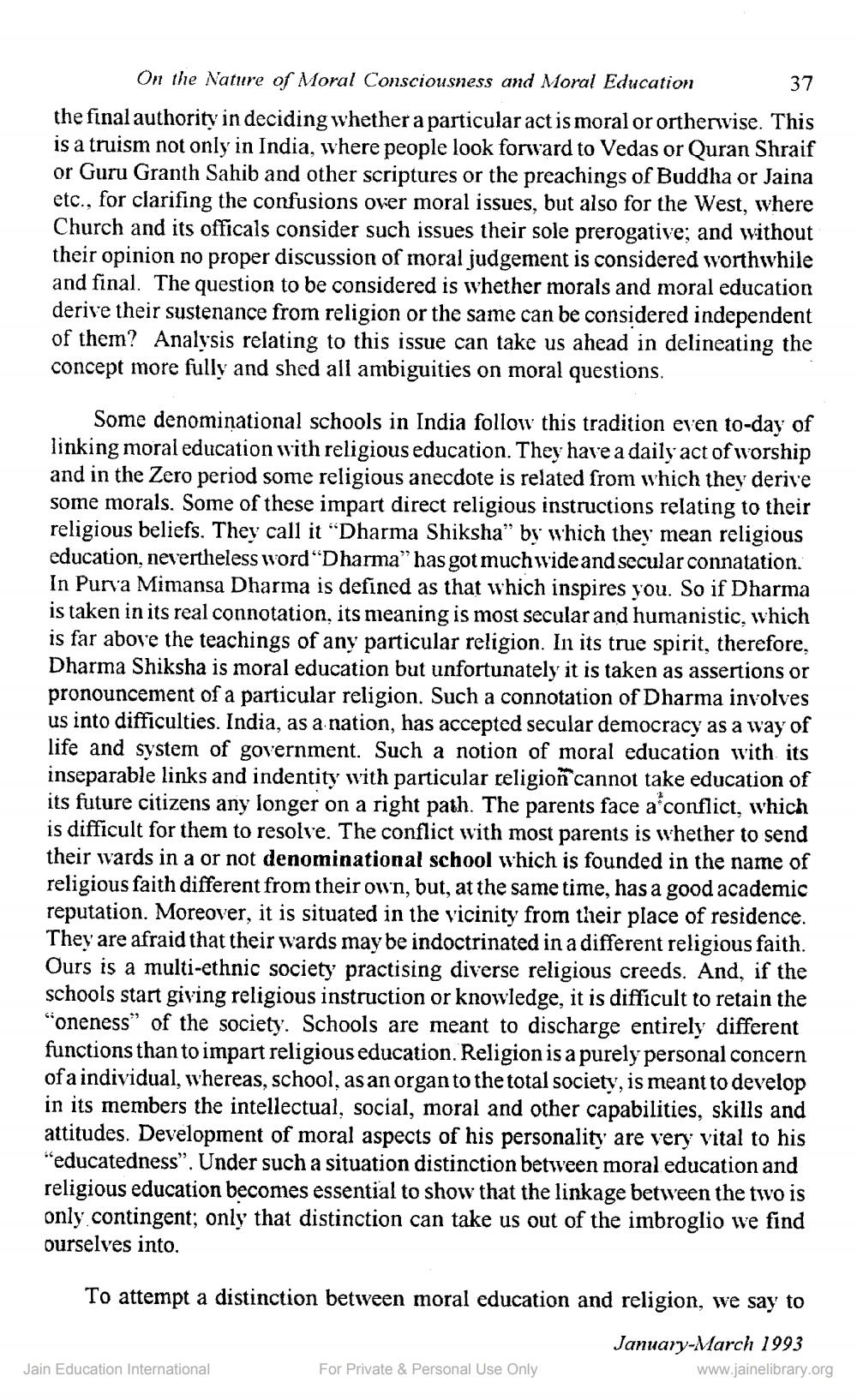________________
On the Nature of Moral Consciousness and Moral Education
37
the final authority in deciding whether a particular act is moral or orthervise. This is a truism not only in India, where people look forward to Vedas or Quran Shraif or Guru Granth Sahib and other scriptures or the preachings of Buddha or Jaina etc., for clarifing the confusions over moral issues, but also for the West, where Church and its officals consider such issues their sole prerogative; and without their opinion no proper discussion of moral judgement is considered worthwhile and final. The question to be considered is whether morals and moral education derive their sustenance from religion or the same can be considered independent of them? Analysis relating to this issue can take us ahead in delineating the concept more fully and shed all ambiguities on moral questions.
Some denominational schools in India follow this tradition even to-day of linking moral education with religious education. They have a daily act of worship and in the Zero period some religious anecdote is related from which they derive some morals. Some of these impart direct religious instructions relating to their religious beliefs. They call it “Dharma Shiksha” by which they mean religious education, nevertheless word “Dharma" has got much wide and secular connatation. In Purva Mimansa Dharma is defined as that which inspires you. So if Dharma is taken in its real connotation, its meaning is most secular and humanistic is far above the teachings of any particular religion. In its true spirit, therefore, Dharma Shiksha is moral education but unfortunately it is taken as asser pronouncement of a particular religion. Such a connotation of Dharma involves us into difficulties. India, as a nation, has accepted secular democracy as a way of life and system of government. Such a notion of moral education with its inseparable links and indentity with particular religion cannot take education of its future citizens any longer on a right path. The parents face a conflict, which is difficult for them to resolve. The conflict with most parents is whether to send their wards in a or not denominational school which is founded in the name of religious faith different from their own, but, at the same time, has a good academic reputation. Moreover, it is situated in the vicinity from their place of residence. They are afraid that their wards may be indoctrinated in a different religious faith. Ours is a multi-ethnic society practising diverse religious creeds. And, if the schools start giving religious instruction or knowledge, it is difficult to retain the "oneness” of the society. Schools are meant to discharge entirely different functions than to impart religious education. Religion is a purely personal concern of a individual, whereas, school, as an organ to the total society, is meant to develop in its members the intellectual, social, moral and other capabilities, skills and attitudes. Development of moral aspects of his personality are very vital to his "educatedness”. Under such a situation distinction between moral education and religious education becomes essential to show that the linkage between the two is only contingent; only that distinction can take us out of the imbroglio we find ourselves into
To attempt a distinction between moral education and religion, we say to
January-March 1993
www.jainelibrary.org
Jain Education International
For Private & Personal Use Only




